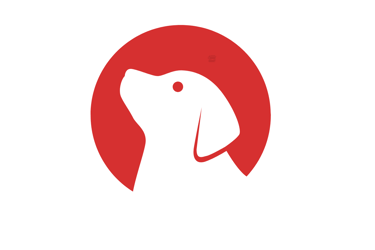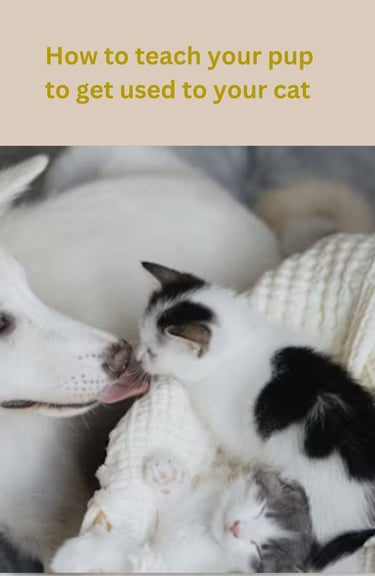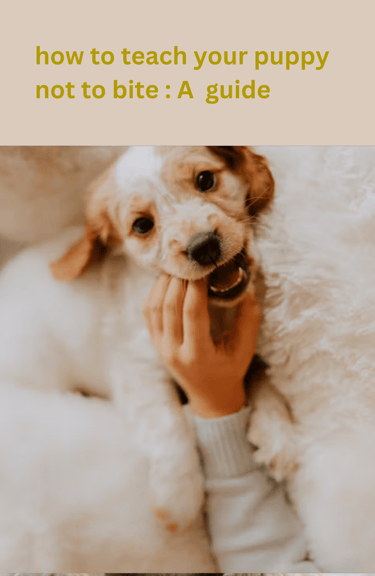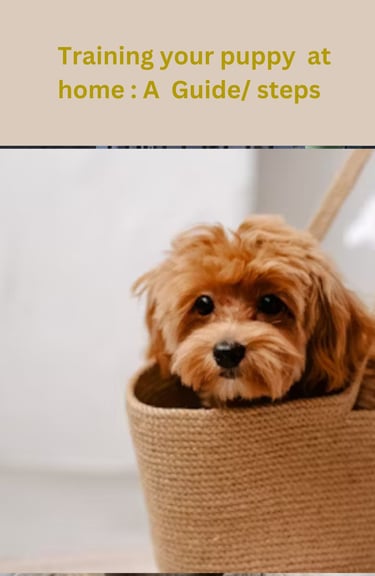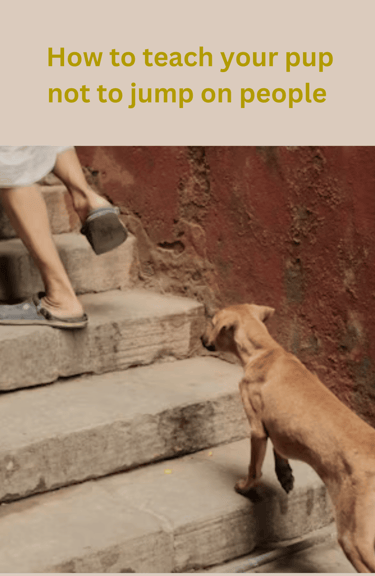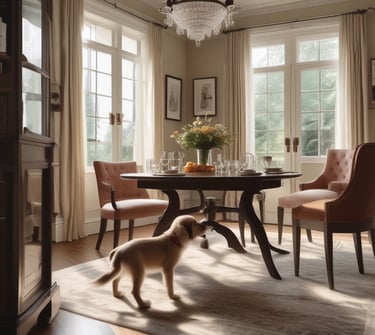How to Teach Your Puppy Not to Pee in the House
during the earlier stages of development, it is crucial for owners to understand the inherent limitations of their puppies in relation to their potty training.


Understanding Puppy Behavior
Puppies are instinctively driven creatures, and their behavior regarding potty habits is often a reflection of their natural instincts. Young dogs, like puppies, do not have the same level of bladder control as adult dogs.
As they mature, their ability to regulate elimination improves, typically around six months of age. Therefore, during the earlier stages of development, it is crucial for owners to understand the inherent limitations of their puppies in relation to their potty training.
A key factor influencing a puppy's behavior is routine. Establishing a consistent schedule for feeding, playtime, and bathroom breaks helps a puppy understand when and where they are expected to relieve themselves.
This regular routine reduces the likelihood of indoor accidents, as puppies will learn to associate specific times with their need to urinate.
Additionally, taking a puppy out frequently, particularly after eating, drinking, or waking up, reinforces the link between external environments and proper potty habits.
Another critical component of puppy behavior is the role that diet and health play in their need to urinate. A balanced diet contributes not only to their overall health but also influences urinary habits.
Puppies that consume a diet high in moisture may need to urinate more frequently. It's essential for puppy owners to monitor the food they provide, ensuring it meets nutritional standards that support a healthy lifestyle.
Moreover, underlying health issues, such as urinary tract infections, can cause increased urination or accidents indoors. Monitoring a puppy's health is crucial, as any sudden changes in their potty habits may warrant veterinary consultation.
In summary, understanding a puppy's natural instincts and behaviors is vital for successful potty training. By recognizing their developmental stage, establishing a routine, and considering dietary and health factors, owners can create an environment conducive to proper potty habits and ultimately reduce the number of indoor accidents.
Establishing a Potty Training Schedule
Creating an effective potty training schedule is crucial in teaching your puppy not to pee in the house. A well-structured routine helps instill good habits and makes the process smoother for both you and your pet. The first step in establishing this schedule is understanding how often to take your puppy outside.
Generally, young puppies need to relieve themselves every one to two hours, but this frequency may vary based on age and size. As your puppy grows, they will be able to hold their bladder for longer periods.
Recognizing the signs that indicate your puppy needs to go outside is equally important.
Puppies may exhibit behaviors such as sniffing around, circling, whining, or becoming restless when they need to urinate. Being attentive to these signals can help prevent accidents in the house and reinforce the idea that going outside is a preferable option.
When you notice these signs, it is essential to take your puppy outside promptly to avoid confusion and frustration.
Integrating potty breaks into your daily life is vital in maintaining consistency. Schedule regular outings for your puppy, particularly after key activities such as meals, playtime, or naps.
After eating, a puppy typically feels the need to urinate within a short period. Similarly, exercise and awakening from sleep will often stimulate their bladder.
By timing these outings strategically, you create a routine that your puppy can learn to anticipate, ultimately reducing indoor accidents.
Ensure the chosen potty locations are the same each time, as this will further aid your puppy in associating these outdoor spots with their relief needs. Consistency and patience in sticking to this potty schedule will greatly assist in effectively teaching your puppy proper toileting behavior.
Positive Reinforcement Techniques
Positive reinforcement plays a pivotal role in effectively potty training your puppy. This approach involves rewarding your puppy for appropriate behavior, specifically when they eliminate outdoors, rather than punishing them for mistakes.
The motivation behind this method is simple: dogs, like many animals, tend to repeat behaviors that yield positive results. When your puppy successfully urinates or defecates outside, promptly providing a reward reinforces their understanding of the desired action.
There are several types of rewards that can be utilized during this training process. Treats are often the most straightforward and effective option; small, tasty morsels that your puppy enjoys can act as an immediate reward. Praise, delivered in a cheerful and upbeat tone, is another powerful form of reinforcement.
Verbal affirmations such as "good boy" or "well done" can enhance your puppy's confidence and encourage them to continue the positive behavior.
Lastly, integrating playtime as a reward can be beneficial; engaging your puppy in a short game of fetch or tug-of-war after a successful outing can build a stronger connection between the act of going outside and receiving joy and excitement.
Consistency is key when employing positive reinforcement techniques. Ensure that each time your puppy successfully eliminates outside, they receive a reward promptly. Delaying rewards might cause confusion; your puppy may not connect the treat or praise to their outdoor restroom behavior.
Furthermore, avoid using negative reinforcement or punishment when a mistake occurs inside the house.
This can lead to anxiety, confusion, and even fear, hindering the training process. Instead, focus on guiding your puppy to the appropriate behavior through a structured routine.
Regularly taking them outside, especially after meals or naps, can help establish the habit.
Maintaining a calm demeanor, along with a consistent reward system, will foster a supportive environment in which your puppy can thrive and learn effectively.
Dealing with Accidents and Setbacks
Puppy potty training is often a process fraught with challenges and setbacks.
It is essential for pet owners to recognize that accidents are a natural part of training and should be addressed without punishment. Responding negatively can instill fear in your puppy, potentially leading to anxiety-related accidents.
Instead, remain calm and reassuring, emphasizing that such occurrences are simply learning opportunities.
One common issue during the potty training journey is marking behavior, where a dog may urinate in the house to establish territory.
This behavior is not necessarily related to a lack of training but may stem from instinctive reactions to changes in their environment or presence of new stimuli.
To address this, it can be helpful to observe your puppy’s behaviors carefully and manage their environment to minimize stressors that may provoke the marking.
Anxiety-driven accidents can also hinder progress in potty training. Puppies may urinate in response to loud noises, unfamiliar settings, or separation anxiety.
Identifying triggers is crucial. Gradual desensitization, where you slowly expose your puppy to these stimuli, can help mitigate anxiety.
Additionally, providing a safe space for your puppy can contribute significantly to their comfort and confidence levels.
Effectively cleaning up accidents is another important consideration. Using enzymatic cleaners is preferable as they break down odor-causing substances that may entice your puppy to revisit the same spot.
Thoroughly cleaning these areas can prevent future accidents by eliminating any residual scent.
As training progresses, maintain consistency by establishing a routine and providing positive reinforcement when your puppy successfully goes outside.
As you navigate the ups and downs of potty training, patience is key. Should challenges persist despite your best efforts, seeking professional assistance from a certified trainer or behaviorist may provide further insights and solutions.

